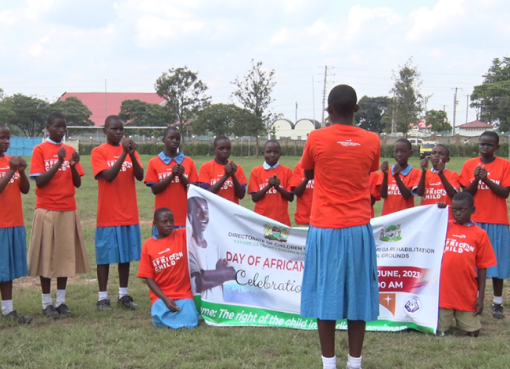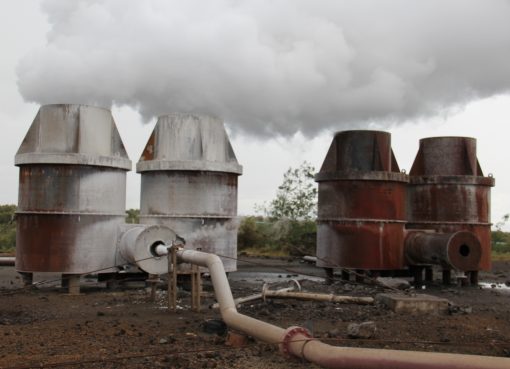As Muslims Embark on the fasting holy month of Ramadhan, containment measures instituted by Presidents Uhuru Kenyatta aimed at flattening the curve have not gone well with some who profess the Islam Religion.
Some of the Muslims who talked to KNA from Githunguri and Kiambu townships feel they will be denied an opportunity to commune together and hold celebrations that are associated with the holy month of Ramadan.
Scores of Muslims in Githunguri are ushering their holy month of Ramadan in a disheartening mood which is in line with the strict government restrictions that dictate social distancing and less crowding in most public places like the mosque.
Talking to KNA after the 1.00 o’clock prayers yesterday at the Kiambu Law courts Friday , Mr. Abdi Wako one of the clerical officers at the judicial institution said it was mandatory for Muslims to pray 5 times a day in the mosque. “Men should go to the mosque while women prayed at home”
He further explained that the current containment measures would greatly affect this year’s celebrations but advised that the congregants could pray from anywhere if they were not allowed to assemble in the mosques.
According to a KNA spot-check, Mr. Abdi isolated himself from his colleagues mainly who are Christians at his time of prayer and hibernated in one of the courts that was free to pray.
He noted that it was important to pray especially at this time when the country and the world at large was experiencing the worst pandemic that has greatly affected mankind.
For the longest time, Ramadhan has been depicted as a month of fasting and socialization but with the pandemic which has been claiming lives of many in the country and new containment measures set, this means a change of activities which have existed since time immemorial.
Shamim Ali a resident of Ngewa in Githunguri says. “I feel the government should review the regulations in the sector of mosques especially during such a holy month. I believe the mosques should be open with measures such as washing hands and social distancing which if embraced as is required, those in such places will not be at risk of contracting any Covid-19 virus which is now a killer disease,”Ali says.
Umar Athman speaking to KNA during an interview at his Karia home in Githunguri sub-county regrets that the zeal he always had for this holy month is not the same because of the restrictions put in place. “We always have our special prayer taraweeh which is conducted at the mosque at 9pm but because of the set curfew time of 8, this will be impossible. For us Muslims we hold a strong belief in praying together but unfortunately this won’t be the case during this year’s Ramadhan and it is really saddening and frustrating to us,” Athman explains.
To Khadija Yusuf, this is one period she is always looking forward to. “Normally I would go to the mosque with my family and friends to break the fast. We would pray together, bond then head home and have an iftar meal (breaking feast meal) with relatives, friends and neighbors. For sure these were some awesome moments to me and family. I can’t imagine a Ramadan without such activities, to make matters worse is having ‘Eid which is the festival after Ramadan with just us locked in our houses. “She says.
Speaking to KNA during a one on one interview Mr. Mohammed Assad an Imam based in Githunguri urges all Muslims to observe the containment measures and conduct their prayers at home. “We have to adhere to the government’s protocols no matter the case. It is to our benefit so let’s cooperate. I believe this the only way we will bring the curve down and make life get back to normal” sir Assad said.
“We used to have special feasts at the mosque so that we can share with those who are not capable but because things are not possible anymore, we are planning to send relief food to vulnerable families to assist them during that time. We are also planning to conduct virtual prayers for Ramadan. This is for those who find it hard praying alone in their homes” he added.
For Yusuf Wangara a doctor based in Muthaiga, he believes it is not always about congregating but at times one should take some time alone, reflect and build a personal connection with Allah. “Last year I had to take some time from work but my plan is to continue serving my country during such a hard time. I tend to Covid patients and that is the only way I will give to society. As long as I’m still praying and fasting then that’s okay.” Doctor Wangara says.
The holy month of Ramadan commences on the ninth month of the Islamic calendar which depends on the phases of the moon. During this time, Muslims commit to fasting from sunset to sunrise. Also, this is a time for giving thanks to Allah for abundance self-reflection, and a time for seeking forgiveness from the Almighty, helping the needy, and adhering to all the Ramadan rules.
By Noel Kuchio and Lydia Shiloya





